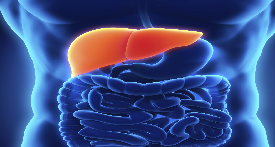
Gastroenterology 2020

Theme: Contemporary researches on Gastroenterology and Hepatology
Meetings International & Gastroenterology 2020 offers several awards given to recognize outstanding scholarly contributions to the field of international studies. These awards have different committees, nominating procedures and submission deadlines. They recognize Best Key Note Speaker Award, Outstanding Speaker Award, Best Organising Committee Member Award, Outstanding Masters/Ph.D/Post. Doc Thesis work presentation Award & Best Poster Award.
Best Key Note Speaker Award: Gastroenterology 2020 will honours the Keynote Speakers who have made significant contributions to the field of information systems but also makes a difference by his presence during the conference. Recipients of the award are considered to have advanced the field through research or service.

Outstanding Speaker Award: Gastroenterology 2020 perceives the individuals who have made significant and imaginative walks in education system. This honour perceives advancement in instructing methodologies and strategies just as in conveying oral presentation in conference. This honour explicitly centers around the uniqueness and creativity that expands members interests

Best Organising Committee Member Award: Gastroenterology 2020 will honour the individual who has demonstrated exemplary support and guidance throughout the conference.

Outstanding Masters/Ph.D/Post. Doc Thesis Work Presentation Award: This award recognizes individuals in the early stages of their careers that have already made outstanding research, teaching, and/or service contributions to the field of information systems.

Best Poster Award: This award recognizes individuals from poster presenters who have display their outstanding research and findings for an innovative future. Recipients of the award are considered to be the Best Poster Presenter of the conference.

Criteria:
- All presented abstracts will automatically be considered for the Award.
- All the presentation will be evaluated in the conference venue
- All the awards will be selected by the judges of the award category
- The winners will be formally announced during the closing ceremony.
- The winners of the Poster Award will receive award certificate.
- The awards will be assessed as far as plan and format, intelligence, argumentation and approach, familiarity with past work, engaging quality, message and primary concerns, parity of content visuals, and by and large impression.
Guidelines:
- All submissions must be in English.
- The topic must fit into scientific sessions of the conference
- Each individual participant is allowed to submit maximum 2 papers
- Abstract must be submitted online as per the given abstract template
- Abstracts must be written in Times New Roman and font size will be 12
- Abstract must contain title, name, affiliation, country, speakers biography, recent photograph, image and reference
- Each poster should be approximately 1x1 M long. The title, contents and the author’s information should be clearly visible from a distance of 1-2 feet.
“Gastroenterology 2020” Conference is delighted to welcome the participants from all over the world to attend the prestigious 4th International Conference on Gastroenterology & Hepatology scheduled during August 26-27, 2020 at Dubai, UAE which based on the theme “Contemporary researches on Gastroenterology and Hepatology”.
Scientific sessions of “Gastroenterology 2020” includes Gastrointestinal Cancer, Bariatric Surgery and Obesity, Colorectal Cancer Screening, Hepatitis, Biliary disorders, Alcoholic & Nonalcoholic Fatty Liver Disease, Liver Cirrhosis and Transplantation, Gastrointestinal cancer, Pancreatitis, Alcoholic liver disease.
Dubai is the most beautiful city in the United Arab Emirates. Dubai is essentially a desert city well with superb infrastructure, liberal policies, that became popular for its excellent tourist amenities. Dubai is famous for sightseeing attractions such as the Burj Khalifa (the world's tallest building) and shopping malls that come complete with mammoth aquariums and indoor ski slopes.
Gastrointestinal cancer refers to malignant conditions of the gastrointestinal (GI) tract and other organs involved in digestion, including the oesophagus, stomach, biliary system, pancreas, small intestine, large intestine, rectum and anus. The symptoms relate to the organ affected and can include obstruction, abnormal bleeding and other associated problems.
Current endoscopes are derived from a primitive system created in 1806-a tiny tube with a mirror and a wax candle. Although crude, this early instrument allowed the first view into a living body. The GI endoscopy procedure may be performed in either an outpatient or inpatient setting. Through the endoscope, a doctor can evaluate several problems, such as ulcers or muscle spasms. These concerns are not always seen on other imaging tests.
3. Bariatric Surgery and Obesity
There are many types of weight-loss surgery, known collectively as bariatric surgery. Gastric bypass is one of the most common types of bariatric surgery in the United States. Many surgeons prefer gastric bypass surgery because it generally has fewer complications than do other weight-loss surgeries. Gastric bypass and other weight-loss surgeries make changes to your digestive system to help you lose weight by limiting how much you can eat or by reducing the absorption of nutrients, or both. Researchers also found that a bariatric surgical procedure reduces obesity and improves glucose tolerance in mice by increasing bile acids and altering gut microbes.
The exact cause of IBD is unknown, but IBD is the result of a defective immune system. IBD is diagnosed using a combination of endoscopy (for Crohn’s disease) or colonoscopy (for ulcerative colitis) and imaging studies, such as contrast radiography, magnetic resonance imaging (MRI), or computed tomography (CT). Several types of medications may be used to treat IBD: aminosalicylates, corticosteroids (such as prednisone), immunomodulators, and the newest class approved for IBD—the “biologics”. Several vaccinations for patients with IBD are recommended to prevent infections. Severe IBD may require surgery to remove damaged portions of the gastrointestinal tract.
5. Gastroesophageal Reflux Disease (GERD)
Gastroesophageal reflux disease (GERD) is a common clinical problem, affecting millions of people worldwide. Patients are recognized by both classic and atypical symptoms. Acid suppressive therapy provides symptomatic relief and prevents complications in many individuals with GERD. Advances in diagnostic and therapeutic modalities have improved our ability to identify and manage disease complications. Here, we discuss the pathophysiology and effects of GERD, and provide information on the clinical approach to this common disorder. Some investigators prefer that inadequate response to twice-daily PPI treatment as refractory disease.
6. Colorectal Cancer Screening
Colorectal cancer is the third leading cause of death from cancer in the United States. Scientists are trying to better understand which people are more likely to get certain types of cancer. Colorectal cancer is often a silent disease, developing with no symptoms at all. Studies show that some screening tests for colorectal cancer help find cancer at an early stage and may decrease the number of deaths from the disease.
7. Pathophysiology of Gastrointestinal Disorders
GI disease may be limited to the GI tract (eg, reflux esophagitis, peptic ulcer, diverticular disease), be a manifestation of a systemic disorder (eg, inflammatory bowel disease), or present as a systemic disease resulting from a primary GI pathologic process. Chronically, GI disease can be complicated by malnutrition and deficiency states. In recent years, a number of mechanisms have been explored. These include disorders of the gut-brain axis, effects of diet, genetic factors, infections and disturbances in the intestinal microbiota, low-grade mucosal inflammation, immune activation, altered intestinal permeability, disordered bile salt metabolism or abnormalities in 5-hydroxytryptamine (5-HT) metabolism.
8. Hepatitis
Viruses cause most cases of hepatitis. The type of hepatitis is named for the virus that causes it; for example, hepatitis A, hepatitis B or hepatitis C. Drug or alcohol use can also cause hepatitis. In other cases, your body mistakenly attacks healthy cells in the liver. During the past 60 years, NIAID-supported investigators have been involved in many important breakthroughs in hepatitis research, including the discovery of the hepatitis A and E viruses. Up to 70% of those chronically infected with hepatitis C develop chronic liver disease, and up to 20% develop cirrhosis.
A diverse spectrum of diseases affects the biliary system, often presenting with similar clinical signs and symptoms. These conditions include gallstones, acute calculus cholecystitis, acute acalculus cholecystitis, Mirizzi syndrome, chronic cholecystitis, cholangitis (recurrent pyogenic, primary sclerosing, primary biliary, autoimmune), biliary tract malignancies, biliary tract cysts, and others. Biliary disease is caused by abnormalities in bile composition, biliary anatomy, or function. The liver determines the chemical composition of bile, and this may be modified later by the gallbladder and the biliary epithelium. Cholesterol, ordinarily insoluble in water, comes into solution by forming vesicles with phospholipids (principally lecithin) or mixed micelles with bile salts and phospholipids.
10. Alcoholic & Nonalcoholic Fatty Liver Disease
Excessive alcohol consumption is a global healthcare problem. Chronic and excessive alcohol consumption produces a wide spectrum of hepatic lesions, the most characteristic of which are steatosis, hepatitis, and fibrosis/cirrhosis. Nonalcoholic fatty liver disease is also most common chronic liver disease because of the obesity epidemic affecting an estimated 80 to 100 million people. Obesity and metabolic syndrome (MS) are the most important risk factors identified in the development of NAFLD. The disease starts with fatty liver or hepatic steatosis and may progress to steatohepatitis with hepatic inflammation.
11. Liver Cirrhosis and Transplantation
Alcohol and viral hepatitis B and C are common causes of cirrhosis, although there are many other causes. Diagnosis of cirrhosis can be suggested by history, physical examination and blood tests, and can be confirmed by liver biopsy. Treatment of cirrhosis is designed to prevent further damage to the liver, treat complications of cirrhosis, and preventing or detecting liver cancer early. Transplantation of the liver is an important option for treating patients with advanced cirrhosis. The life expectancy for advanced cirrhosis is 6 months to 2 years depending on complications of cirrhosis, and if no donor is available for liver transplantation. The life expectancy is more that 12 years for a person with cirrhosis and no major complications.
12. Diagnosis & Advanced Treatments
Researchers have explored the hypothesis that antidepressants and psychological therapies can offer symptom relief for individuals with functional gastrointestinal GI disorders. Advanced endoscopic techniques should be considered for complex colorectal lesions without signs of deep submucosal invasion or advanced cancer. Several new devices that allow traction and countertraction, as well as electrosurgical knives with integrated water jets to lift and cut simultaneously, have recently been introduced and are under study. Based on the medical history, physical examination, doctors choose appropriate tests. Tests done on the digestive system include the following: Acid-related and reflux-related tests, CT and MRI, Endoscopy, Intubation of the digestive tract, Laparoscopy etc,.
Introduction
In 1965, among the major benign GI disorders, 51.9% of the research was performed on hepatitis, 25.7% on pancreatitis, 21.7% on upper GI diseases and only 0.7% on the lower GI disorders. Half a century later, in 2015, research on hepatitis and upper GI diseases had not changed significantly; however, studies on pancreatitis had dropped to 10.7%, while work on the lower GI disorders had risen to 23.4%. With regard to the malignant disorders (including liver, gastric, colon, pancreatic and oesophageal cancer), no such large-scale changes were observed in the last 50 years. Detailed analyses revealed that besides the drop in research activity in pancreatitis, there are serious problems with the quality of the studies as well. Only 6.8% of clinical trials on pancreatitis were registered and only 5.5% of these registered trials were multicentre and multinational (more than five centres and nations), i.e., the kind that provides the highest level of impact and evidence level.
Why to organize this conference?
1. To share learning and best follow from thought leaders and specialists in the field of Gastroenterology and Hepatology
2. To engage with compatible individuals with shared interests
4. To make a discussion about the diseases and betterment of its treatment
5. To form new partnerships all over the world
6. To get results and diffuse messages face to face in an exceedingly value effective manner
7. To provoke action and collectively bring the evolution in the field of Gastroenterology and Hepatology and its treatment
8. To network and meet new people and organisations who are professional in the field of Gastroenterology and Hepatology.
9. To encourage PR and media coverage
Importance & Scope
Gastrointestinal and liver disorders are preeminent among healthcare issues globally, a significant burden to national healthcare budgets and the single greatest cause of cancer death. While an increasing awareness of causative factors, coupled with dramatic advances in diagnostic and therapeutic approaches have led to improvements in the prevention, diagnosis and treatment of gastrointestinal and liver disorders, these benefits have not been transmitted equally across the world and, especially, to those in greatest need.
- Increase global public awareness of gastrointestinal and liver disorders
- Provides opportunities to meet healthcare professionals in gastrointestinal and liver disorders throughout the world, regardless of location
- Promote international collaboration in digestive health education, training and research
- Support healthcare professionals who care for those with gastrointestinal and liver disorders throughout the world.
American Gastroenterology Universities:
- American College of Gastroenterology, USA
- American Gastroenterological Association, USA
- Texas Gastroenterology Institute, USA
- Harvard University, USA
- Johns Hopkins University, USA
- Maryland School of Medicine, USA
- Vermont College of Medicine, USA
- Federal Fluminense University, Brazil
- Austral University, Argentina
- Gastroenterology - Research & Clinical Trials, Canada
- Division of Gastroenterology – University of Alberta, Canada
- American Academy of Surgery, USA
Europe Gastroenterology Universities
- Trinity Collage Dublin, Ireland
- Donetsk Medical University, Ukraine
- Tartu University, Estonia
- University of Helsinki, Finland
- University of Chester, UK
- World Gastroenterology Organisation, Austria
- European Association for Gastroenterology, Germany
- Research Center of Gastroenterology and Hepatology, Romania
- European Society of Gastrointestinal Endoscopy, France
- United European Gastroenterology, Austria
- University of Gothenburg, Sweden
- Buda Health Centre, Hungary
- University Medical Centre Freiburg, Germany
- University of Camerino, Italy
- Kazan State Medical University, Russia
Asia-Pacific Gastroenterology Universities:
- Asian Institute of Gastroenterology, India
- Institute for Clinical Sciences (SICS), Singapore
- Endoscopy Asia, India
- Tohoku Research Centre, Japan
- Clinical Research Institute of Diabetes in Changsha, China
- Mahkota Medical Centre, Malaysia
- Bumrungrad Hospital, Thailand
- Institute of Gastroenterology, South Korea
Middle East Gastroenterology Universities:
- Columbia University Middle East Research Centre, Jordan
- The King Saudi University, Saudi Arabia
- Tehran University of Medical Sciences, Iran
Gastroenterology Research Centers in America:
- Ohio Gastroenterology and Liver Institute, Ohio
- Gastrointestinal Health Research, Canada
- Gastroenterology Research of America, Texas
Gastroenterology Research Centers in Europe:
- German Cancer Research Center
- The Rome Foundation, Rome
- Centre for Liver and Gastrointestinal Research
- SLO Foundation for Liver and Gastrointestinal Research, Netherlands
Gastroenterology Research Centers in Asia-Pacific :
- Asian Institute of Gastroenterology, Malaysia
- Shanghai Institute of Digestive Disease (SIDD), China
- Research Center for Hepatology and Gastroenterology, Japan
Gastroenterology Research Centers in Middle East
- Harvard Medical School Centre for Global Health Delivery, Dubai
- Columbia University Middle East Research Centre, Jordan
- Sidra Medical Research Centre, Qatar
- Beth Israel Deaconess Medical Center, Israel
- Dubai Specialized Medical Centre & Medical Research Labs, Dubai
- Gastroenterology and Hepatology Training in the Islamic Republic of Iran, Iran.
- Harley Street Medical Centre, UAE
- Advanced Centre for Day Care Surgery, UAE
- King Faisal Specialist Hospital & Research Centre, Saudi Arabia
Gastroenterology Hospitals in America
- University of Toledo Medical Center, USA
- Digestive and Liver Disease Center of San Antonio, USA
- Pacific Internal Medicine Associates, San Francisco
- The Johns Hopkins Hospital, USA
- Eastside Endoscopy Center, St. Clair Shores, USA
- Massachusetts General Hospital,USA
Gastroenterology Societies in Europe
- Belgian Society of Gastrointestinal Endoscopy, Belgium
- European Society of Gastrointestinal Endoscopy, Germany
- European society of Neuogastroenterology & Motility, Belgium
- German Society for Digestive and Metabolic Diseases, Germany
- Russian Society for Digestive Endoscopy, Russia
Gastroenterology Hospitals in Middle East
- Al Zahra Hospital, Dubai
- Aleppo University Hospital, Syria
- King Hamad University Hospital, Bahrain
- American Hospital,Qatar
- Belhoul Speciality Hospital, Dubai
- King Khalid University Hospital, Riyadh
- KIMS Oman Hospital, Oman
Gastroenterology Societies in America:
- The American Society of Colon and Rectal Surgeons, USA
- American Society for Gastrointestinal Endoscopy, USA
- NASPGHN, USA
- Atlanta Gastroenterology Associates, USA
Gastroenterology Societies in Asia-Pacific
- Japanese Society of Gastroenterology, Japan
- Hong Kong Society of Gastroenterology, China
- Gastroenterological Society of Singapore, Singapore
- Chinese Society of Gastroenterology, China
Gastroenterology Societies in Middle East
- Emirates Gastroenterology & Hepatology Society, UAE
- Egyptian Society of Hepatology and Gastroenterology, Egypt
- Saudi Gastroenterology Association, Saudi Arabia
Gastroenterology Associations in Europe
- British society of Gastroenterology, UK
- British society for Paediatric Gastroenterology, Hepatology and Nutrition, UK
- Association of Gastroenterologists of Bosnia and Herzegovina, Herzigovina
- Ukrainian Association of Endoscopy, Ukraine
- Bulgarian Association of Surgeons and Gastroenterologists, Bulgaria
Gastroenterology Associations in America
- American Gastroenterological Association, California
- Canadian Association of Gastroenterology (CAG), Canada
- National Fibromyalgia & Chronic Pain Association
Gastroenterology Associations in Asia-Pacific
- Indian Association of Surgical Gastroenterology, India
- China Anti-Cancer Association, China
- The Japanese Gastroenterological Association, Japan
- Russian Gastroenterological Association, RGA, Russia
Gastroenterology Associations in Middle East
- Saudi gastroenterology Association, Saudi Arabia
- Israel Gastroenterology Association
- Iranian Association of Gastroenterology
Fund Allotment to Gastroenterology Research
Commensurate with the large burden of digestive diseases in the United States, substantial resources are devoted to research related to digestive diseases at the National Institutes of Health (NIH). Awards for digestive diseases research represent a significant fraction of the overall NIH appropriation, which is just under $31 billion for fiscal 2012. As listed in the NIH Research Portfolio Online Reporting Tools (RePORT) in fiscal 2011, research expenditures for digestive diseases were nearly $1.7 billion, an amount that has increased over the last 4 years by >$270 million. In addition, in fiscal 2009 and fiscal 2010 an additional $471 million in awards was made through the American Recovery & Reinvestment Act.
References
Meetings International is announcing Young Scientist Awards through 4th International Conference on Gastroenterology & Hepatology (Gastroenterology 2020) which is scheduled at Dubai, UAE during August 26-27, 2020. This Gastroenterology conference focuses on “Contemporary researches on Gastroenterology and Hepatology”.
Gastroenterology 2020 and upcoming conferences will recognise participants who have significantly added value to the scientific community of environmental science and provide them outstanding Young Scientist Awards. The Young Scientist Award will provide a strong professional development opportunity for young researches by meeting experts to exchange and share their experiences at our international conferences.
Gastroenterology 2020 focuses mainly on Gastrointestinal Cancer, Gastrointestinal Endoscopy, Bariatric Surgery and Obesity, Inflammatory Bowel Disease, Gastroesophageal Reflux Disease. Gastroenterology conference operating committee is providing a platform for all the budding young researchers, young investigators, post-graduate/Master students, PhD. students and trainees to showcase their research and innovation.
Eligibility:
Young Scientists, faculty members, post-doctoral fellows, PhD scholars and bright Final Year MSc and M.Phil. candidates. Persons from Scientific Industry can also participate.
Benefits: The Young Scientist Feature is a platform to promote young researchers in their respective area by giving them a chance to present their achievements and future perspectives.
- Acknowledgement as YRF Awardee
- Promotion on the conference website, Young Researcher Awards and certificates
- Link on the conference website
- Recognition on Meetings Int. Award Page
- Chances to coordinate with partners around the world
- Research work can be published in the relevant journal without any publication fee
Criteria:
- All presented abstracts will automatically be considered for the Award.
- All the presentation will be evaluated in the conference venue
- All the awards will be selected by the judges of the award category
- The winners of the Young Scientist Award will receive award certificate.
- The awards will be assessed as far as plan and format, intelligence, argumentation and approach, familiarity with past work, engaging quality, message and primary concerns, parity of content visuals, and by and large impression.
Guidelines:
- All submissions must be in English.
- The topic must fit into scientific sessions of the conference
- Each individual participant is allowed to submit maximum 2 papers
- Abstract must be submitted online as per the given abstract template
- Abstracts must be written in Times New Roman and font size will be 12
- Abstract must contain title, name, affiliation, country, speakers biography, recent photograph, image and reference
Conditions of Acceptance:
To receive the award, the awardee must submit the presentation for which the award is given, for publication at the website, along with author permission. Failure to submit the PPT, and permission within the designated timeframe will result in forfeiture of award.
Award Announcements:
Official announcement of the recipients will occur after the completion of Gastroenterology Conference.
4th International Conference on Gastroenterology & Hepatology provides liability to all the global emirates to grow your business globally and sell your Research Materials, pharmaceuticals, Antibodies, Clinical Reagents, Chemicals, Instruments. Breathe life into your products and make moment brand mindfulness with a pennant advertisement arrangement. Make your pennant intuitive to guide individuals to where you need them to go.
Meetings International is providing opportunity to advertise and connect with the experts and leaders across the world. 3+ Million Website Visitors, 40000+ Conference Website Visitors and 1000+ Sessions which confirm the outstanding pool of new users and visitors creating a platform to build your market place globally. Meetings International helps you to connect with global clients anywhere at any time via our unrivalled, worldwide professionals reach. Start promoting your brand today, basically browse our immense scope of custom fitted, multi-channel publicizing and sponsorship alternatives across print and computerized stages and select the geology of your intended interest group.
We maintain high quality and ethical standards in event industry, which makes us unique and better than the rest. Advertisement banner must be provided by the advertising company and must be in the jpg or jpeg format. The banner must be of high resolution and must not have copyright infringement.
For further queries, connect our conference manager at gastroenterology@annualmeetings.net; sponsor@meetingsint.com
You can also connect us via WhatsApp: +65 3158 1626 / + 44 7482 874377
- Gastrointestinal Cancer
- Gastrointestinal Endoscopy
- Bariatric Surgery and Obesity
- Inflammatory Bowel Disease
- Gastroesophageal Reflux Disease (GERD)
- Colorectal Cancer Screening
- Pathophysiology of Gastrointestinal Disorders
- Hepatitis
- Biliary disorders
- Alcoholic & Nonalcoholic Fatty Liver Disease
- Liver Cirrhosis and Transplantation
- Diagnosis & Advanced Treatments
- Geoinformatics & Geostatistics: An Overview
- Research and Reports in Gastroenterology




























































































































